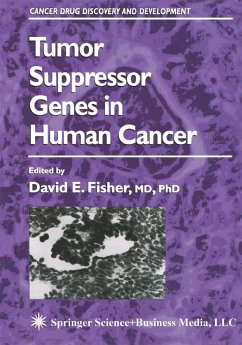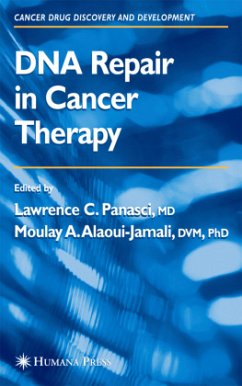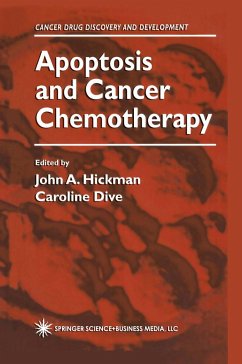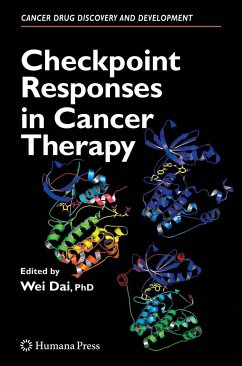
Death Receptors in Cancer Therapy
Versandkostenfrei!
Versandfertig in 6-10 Tagen
83,99 €
inkl. MwSt.

PAYBACK Punkte
42 °P sammeln!
An in depth review of our latest understanding of the molecular events that regulate cell death and those molecules that provide targets for developing agonists or antagonists to modulate death signaling for therapeutic purposes. The authors focus on the extrinsic system of death receptors, their regulation and function, and their abnormalities in cancer. Topics of particular interest include resistance to apoptosis, TRAIL signaling, death receptors in embryonic development, mechanisms of caspase activation, and death receptor mutations in cancer. Additional chapters address death signaling in...
An in depth review of our latest understanding of the molecular events that regulate cell death and those molecules that provide targets for developing agonists or antagonists to modulate death signaling for therapeutic purposes. The authors focus on the extrinsic system of death receptors, their regulation and function, and their abnormalities in cancer. Topics of particular interest include resistance to apoptosis, TRAIL signaling, death receptors in embryonic development, mechanisms of caspase activation, and death receptor mutations in cancer. Additional chapters address death signaling in melanoma, synthetic retinoids and death receptors, the role of p53 in death receptor regulation, immune suppression of cancer, and combination therapy with death ligands. Cell death, or apoptosis, plays an important role in biological processes and disease and offers special opportunities to develop new therapies for cancer, autoimmune disease, stroke, heart attack, and Alzheimer's disease.In Death Receptors in Cancer Therapy, leading physician-scientists and basic researchers review in depth our latest understanding of the molecular events that regulate cell death, illuminating those molecules that provide targets for agonists or antagonists designed to modulate death signaling for therapeutic purposes. The authors focus on the extrinsic system of death receptors, their regulation and function, and their abnormalities in cancer. Topics of particlar interest include resistance to apoptosis, TRAIL signaling, death receptors in embryonic development, mechanisms of caspase activation, and death receptor mutations in cancer. Additional chapters address death signaling in melanoma, synthetic retinoids and death receptors, the role of p53 in death receptor regulation, immune suppression of cancer, and combination therapy with death ligands.
Authoritative and up-to-date, Death Receptors in Cancer Therapy offers a timely compendium of cell death signaling pathways for those seeking either a basic understanding of apoptosis or the knowledge needed to develop new therapeutics that will activate or block death signaling in disease.
Authoritative and up-to-date, Death Receptors in Cancer Therapy offers a timely compendium of cell death signaling pathways for those seeking either a basic understanding of apoptosis or the knowledge needed to develop new therapeutics that will activate or block death signaling in disease.














